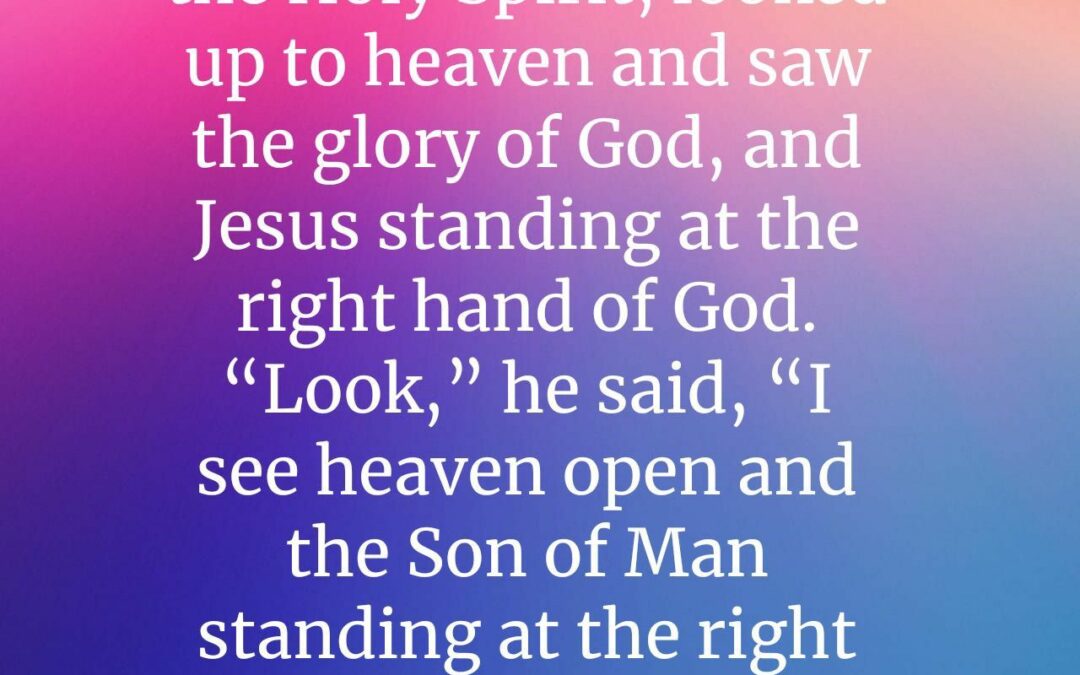No one can be dogmatic about an answer, but I think there are a couple of strong possibilities: First, it could signify that Jesus does not just sit by passively merely watching events unfold, but stands ready and willing to pour out grace for the needs of his people. Here, Jesus has sustained Stephen and is ready to receive him with the grand commendation—
well done good and faithful servant; enter into the joy of your master.
Additionally, it’s very possible that Jesus is shown standing at the Father’s right hand to indicate that he is an active judge. It reaffirms to Stephen that those who mistreat Christ’s followers because of their association and obedience to him, will be judged righteously and completely. This is similar to what is said in James 5:9—do not trifle with the justice of God since the Judge is standing right at the door.
The context of Acts 7 and Stephen’s circumstances are very specific, but all of us need to trust in the following two principles, especially when being mistreated—1) Jesus does not distance himself from those in difficulty, but instead draws near and stands ready to provide mercy in a time of need; 2) Nothing happens apart from his piercing omniscience knowing it and he is the perfect judge.

